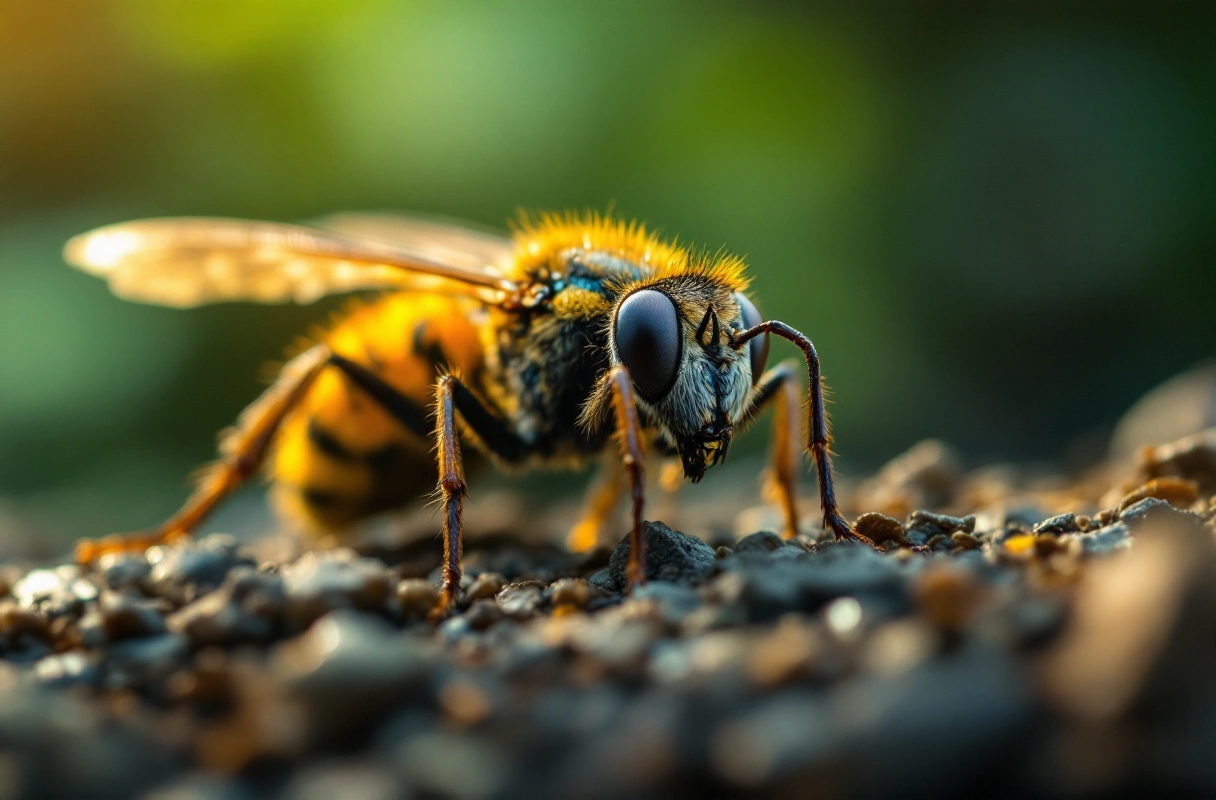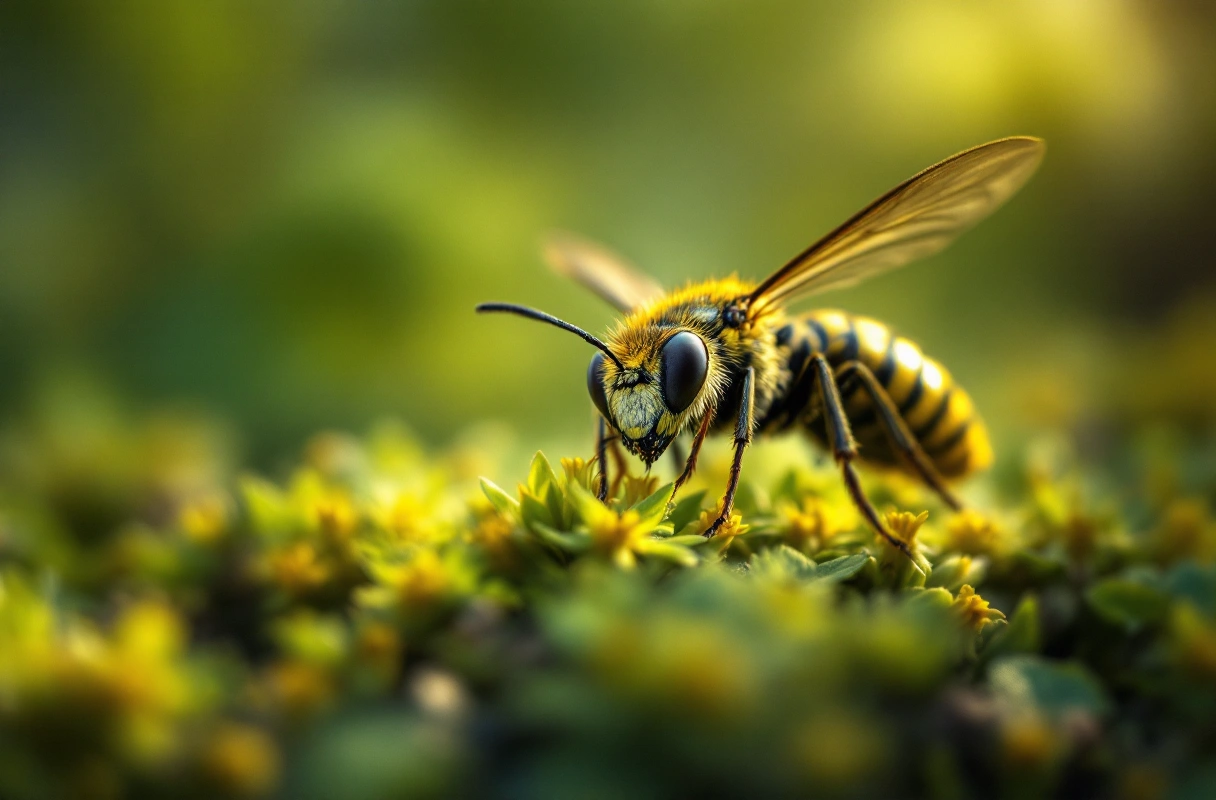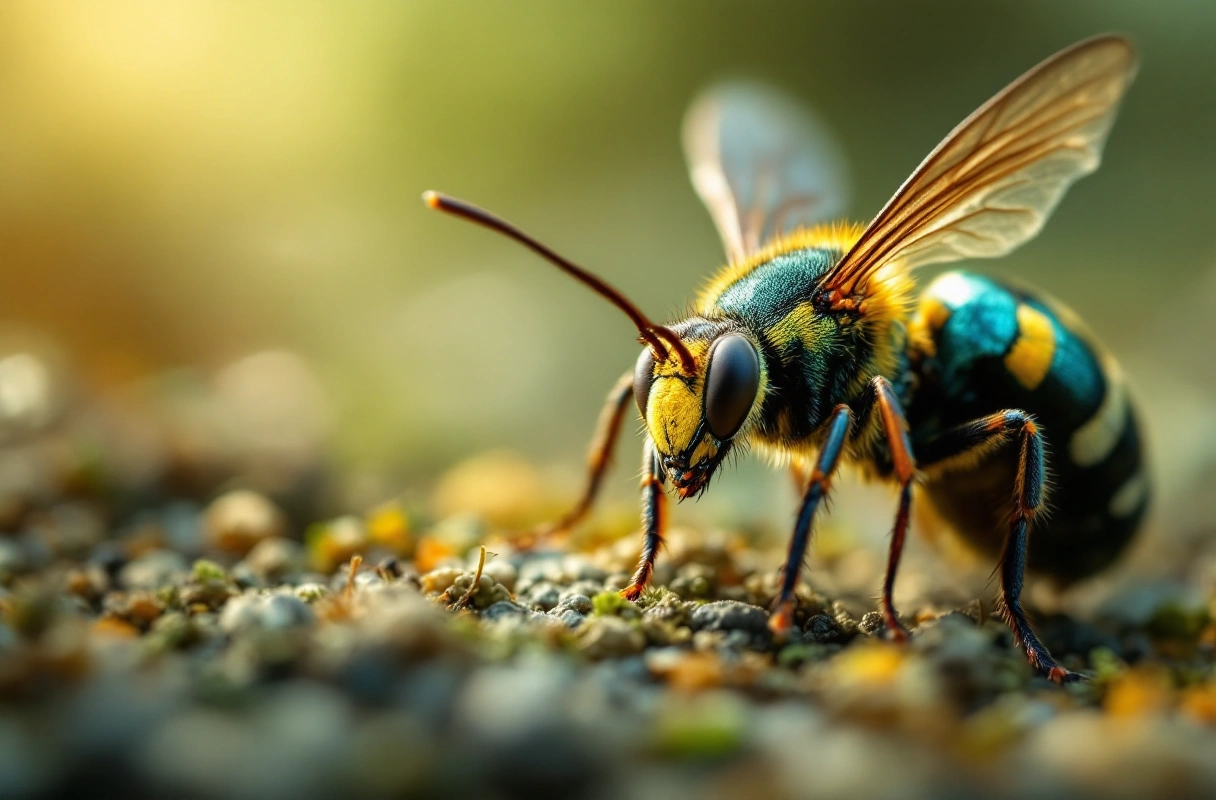
Insects are often overlooked in discussions about biodiversity and ecosystem health. Yet, they play an indispensable role in maintaining ecological balance and supporting life on Earth. As we navigate the complexities of environmental challenges in 2025, understanding the critical environmental roles of insects becomes increasingly important. This article delves into the significance of insects in ecosystems, exploring their roles in pollination, nutrient cycling, and as indicators of environmental health.

Insects are the most diverse group of animals on the planet, with over a million known species, and their presence is vital for the stability and functionality of ecosystems. They contribute to various ecological processes that sustain life, from pollination to decomposition. A deeper understanding of these roles can help us appreciate the intricate web of life that supports our environment.
Pollination is one of the most critical roles insects perform in ecosystems. Approximately 75% of flowering plants depend on animal pollinators, and insects are responsible for the majority of this service. Bees, butterflies, moths, and beetles are among the most effective pollinators, facilitating the reproduction of many crops and wild plants.
Impact on Food Production: Insects contribute to agricultural productivity by pollinating crops such as fruits, vegetables, and nuts. For instance, the economic value of insect pollination in the United States is estimated to be over 15 billion dollars annually. This highlights the direct correlation between insect health and food security.
Biodiversity Support: By aiding in plant reproduction, insects help maintain genetic diversity within plant populations. This diversity is crucial for ecosystem resilience, allowing ecosystems to adapt to changing conditions, such as climate change and habitat loss.
Insects play a pivotal role in nutrient cycling, breaking down organic matter and recycling nutrients back into the soil. This process is essential for maintaining soil health and fertility.
Decomposers: Many insects, such as ants, termites, and certain beetles, are decomposers that feed on dead plants and animals. By breaking down this organic material, they accelerate the decomposition process and contribute to the formation of nutrient-rich soil.
Soil Aeration: Insects also help aerate the soil, enhancing its structure and facilitating water infiltration. This aeration is vital for plant growth, as it allows roots to access oxygen and nutrients more effectively.
Insects are excellent bioindicators of environmental health due to their sensitivity to changes in habitat quality, pollution levels, and climate conditions. Monitoring insect populations can provide valuable insights into ecosystem health.
Biodiversity Monitoring: A decline in insect biodiversity often signals broader ecological issues. For example, studies have shown that regions with reduced insect populations also experience declines in bird and mammal species, indicating a cascading effect on food webs.
Pollution Indicators: Certain insect species are particularly sensitive to pollution. For instance, the presence of mayflies and stoneflies in freshwater systems indicates good water quality, while their absence may suggest significant environmental degradation.

Despite their critical roles, insects face numerous threats that jeopardize their populations and, consequently, ecosystem health. Understanding these challenges is essential for developing effective conservation strategies.
One of the most significant threats to insect populations is habitat loss due to urbanization, agricultural expansion, and deforestation. As natural habitats are destroyed, insects lose their breeding grounds and food sources.
Fragmentation: Habitat fragmentation can isolate insect populations, making it difficult for them to find mates and leading to reduced genetic diversity. This isolation can have long-term effects on population viability.
Land Use Changes: Intensive agricultural practices often involve the use of pesticides and monocultures, which can decimate insect populations. Implementing sustainable agricultural practices can help mitigate these impacts.
Climate change poses an additional threat to insects, affecting their life cycles, distribution, and interactions with other species.
Shifts in Habitats: Many insects are unable to adapt quickly to changing temperatures and may be forced to migrate to cooler areas. This migration can disrupt existing ecosystems and lead to conflicts with native species.
Phenological Changes: Climate change can alter the timing of life cycle events, such as flowering and breeding. These mismatches can have cascading effects on pollination and food availability, impacting entire ecosystems.

Given the vital roles insects play in ecosystems, promoting their conservation is crucial. Here are some actionable strategies to support insect populations:
Create Pollinator Gardens: Planting diverse native flowering plants can provide food and habitat for pollinators. Incorporating a variety of plant species that bloom at different times throughout the year can help sustain insect populations.
Reduce Pesticide Use: Opt for integrated pest management (IPM) practices that minimize chemical use. By using natural predators and organic methods, you can protect insect biodiversity while managing pests effectively.
Support Sustainable Agriculture: Encourage local farms that practice sustainable methods, such as crop rotation and organic farming. Supporting these practices can help maintain healthy insect populations.
Educate and Advocate: Raise awareness about the importance of insects and advocate for policies that protect their habitats. Engaging in community efforts to preserve natural areas can have a lasting impact.
Despite their ecological importance, many misconceptions about insects persist. Addressing these misunderstandings can foster greater appreciation for these creatures.
While some insects can be pests, the vast majority are harmless or beneficial. For example, ladybugs and lacewings are natural predators of aphids, helping to control pest populations without the need for chemical interventions.
Fear of insects often stems from a lack of understanding. Most insects pose little to no threat to humans. In fact, many insects, like bees and butterflies, are crucial for food production and biodiversity.
Many people underestimate the direct benefits insects provide. From pollination of crops to decomposition of organic waste, insects are integral to human survival and well-being.
Education plays a fundamental role in raising awareness about the importance of insects and fostering a culture of conservation. By engaging with young people and nature enthusiasts, we can cultivate a generation that values biodiversity and understands the critical roles insects play in ecosystems.
Programs that focus on hands-on learning and outdoor exploration can ignite a passion for nature in students and children. Activities such as insect identification, habitat restoration, and nature walks can deepen their understanding of ecological relationships.
Field Trips: Organizing field trips to local natural areas can provide firsthand experiences with insects and their habitats, encouraging curiosity and respect for the environment.
Interactive Workshops: Workshops that teach about insect life cycles, habitats, and roles in ecosystems can empower students to become advocates for insect conservation.
Insect conservation is not solely the responsibility of scientists and policymakers; it requires community involvement. Local initiatives can have a significant impact on promoting insect-friendly practices and preserving habitats.
Community Gardens: Establishing community gardens that prioritize native plants can create habitats for insects while providing educational opportunities for residents.
Citizen Science Projects: Engaging the community in citizen science projects, such as insect monitoring programs, can foster a sense of ownership and responsibility for local ecosystems.
Insects are essential to the health of ecosystems, and their roles cannot be underestimated. As we navigate the environmental challenges of 2025, it is crucial to recognize the importance of insects and take proactive steps to protect them.
The Banana Slug Club is dedicated to fostering a love for nature and science among young people. By providing resources, educational programs, and opportunities for hands-on learning, we aim to inspire the next generation of environmental stewards.
If you are a nature enthusiast, student, or parent excited about learning more about the world of insects, we invite you to explore our website for educational materials, activities, and community events. Together, we can work towards a future where insects thrive, ecosystems flourish, and everyone appreciates the vital roles these creatures play in our environment.
Insects are not just a part of the ecosystem; they are the architects of ecological balance. Join the Banana Slug Club in promoting insect conservation and nurturing a deeper understanding of the natural world. Visit our website or contact us for more information on how you can get involved and make a difference.
Get free resources, early access to new features and updates.
No spam. Just fun educational emails!